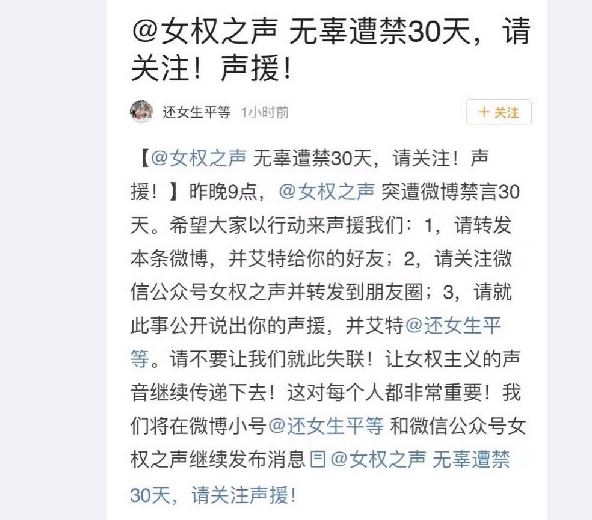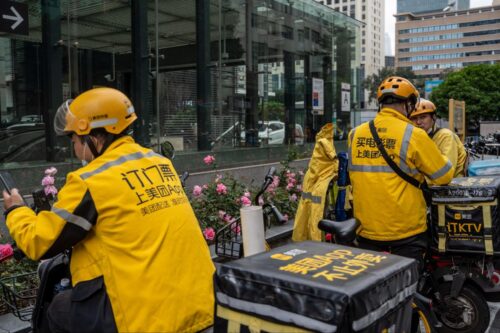Food-delivery services sued for causing environmental damage – China’s latest society and culture news
A summary of the top news in Chinese society and culture for September 25, 2017. Part of the daily The China Project newsletter, a convenient package of China’s business, political, and cultural news delivered to your inbox for free. Subscribe here.

“This article sounds like disposable utensils come for free. But, in fact, we already are forced to pay a packaging fee for each order we make.”
“What does it have to do with these platforms? Even if they didn’t exist, we could still order food directly from restaurants. Wouldn’t it be more effective for this environmental organization to sue manufacturers of single-use containers and utensils?
Following a viral article that cast blame on the meal-delivery industry in China for “destroying our children’s future” with food-packaging waste, the country’s three biggest internet food-delivery platforms — Ele.me, Meituan Waimai, and Baidu Waimai — are now being sued by an environmental organization for the harmful effects of their packaging.
However, although the lawsuit was intended to raise people’s awareness of pollution, most internet users, as illustrated by the two comments above (in Chinese), seemed to side with the companies and doubted the effectiveness of the lawsuit.
The suit was filed by the Green Volunteer League of Chongqing, an activist organization based in Sichuan Province, and was accepted by the No. 4 Beijing Intermediate People’s Court on September 1. The group argues that “there are defects in the meal-delivery platforms’ business practices” as they generally don’t provide an option for users to opt out of disposable utensils when they place orders. The organization alleges that the offering of single-use chopsticks and other disposable utensils by default not only violates official notices on curbing the use of plastic bags and disposable chopsticks, but also infringes upon consumer choice. Other fast-food chains that provide in-house meal-delivery services such as McDonald’s and KFC are also under the group’s watch.
In an open letter (in Chinese) published on its website, the NGO said, “Based on a conservative estimate that each order comes with 1.5 single-use chopsticks, Meituan kills 6,700 trees with its 13 millions orders every day.” The organization also believes that “if a feature that allows users to easily opt out of disposable utensils is available on these platforms, pollution pressures on the environment will be relieved significantly.”
In response to the accusation, all three giant food-delivery companies have vowed to tackle the problem as the NGO requested. On the platform of Ele.me, users in Shanghai have been offered the “no utensils” option already. But the result wasn’t very satisfactory: “Very few users chose not to receive disposable utensils,” a public relations person from Ele.me told the Beijing News (in Chinese). “In a joint effort to reduce environmental damage caused by food-packaging waste, meal-delivery platforms can do very little.”
-
Pandas
Pandas are no longer endangered. But their habitat is in trouble. / NYT (paywall) -
History
How did women fare in China’s Communist Revolution? / NYT (paywall) -
Sports
Hockey gets warm and confused welcome by the Chinese / ESPN
US Open finalists knocked out in 1st round at Wuhan Open / AP -
Wuhan
Chinese city uses facial recognition to tackle jaywalking / China Daily -
Controversies
Chinese tech firm Xiaomi apologizes for joke suggesting it didn’t want to hire Japanese-language students / SCMP -
Islam
No more online anti-Islam terms allowed on Weibo – but discussions continue anyway / What’s on Weibo -
Architecture
How an architect’s legacy inspired a new face for Datong / Sixth Tone -
Music
From Storm to Ultra, music festivals are growing in popularity in China / CNBC -
Oddities
Man who was too lazy to climb stairs gets private lift to flat / SCMP
Chinese university building mocked for looking like giant toilet / SCMP
Pine nut picker missing after hydrogen balloon floats away / Sixth Tone
Rich kid buys girl 8-foot-tall Costco teddy bear, gets rejected / What’s on Weibo






